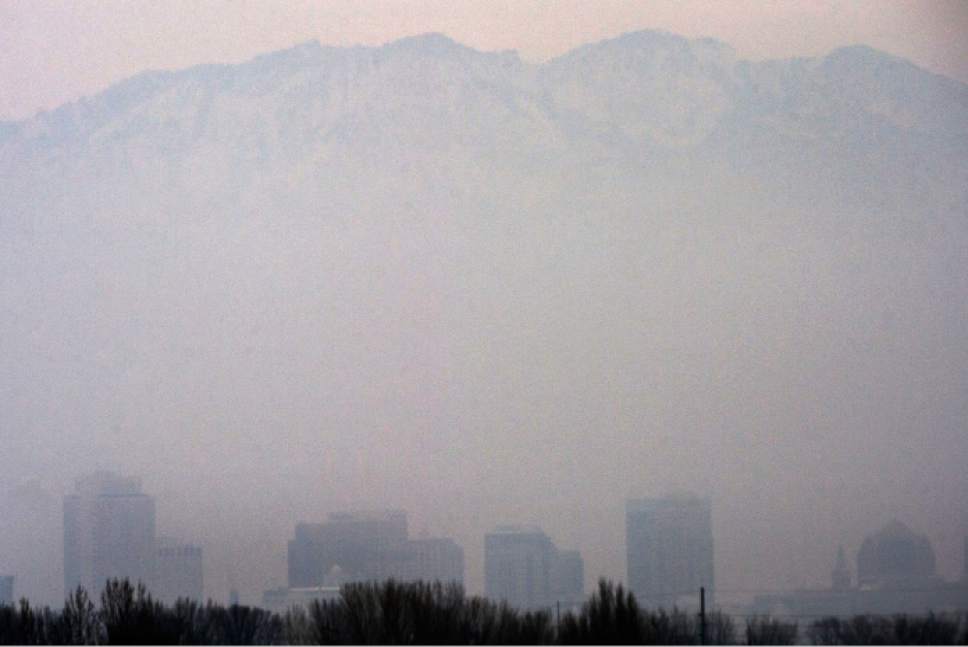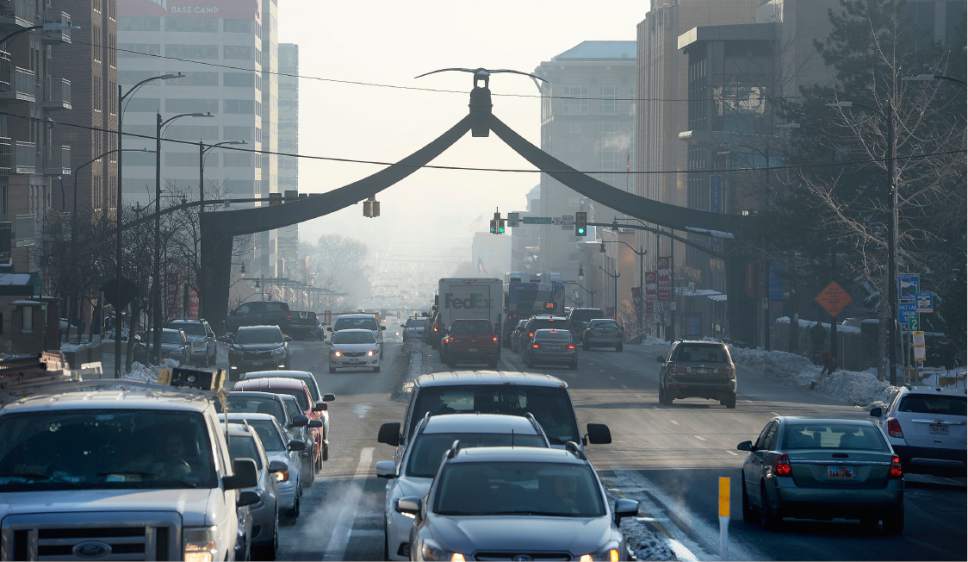This is an archived article that was published on sltrib.com in 2017, and information in the article may be outdated. It is provided only for personal research purposes and may not be reprinted.
Utah air advocates and regulators are praising Chevron's announcement that it will produce cleaner gasoline at its Salt Lake City oil refinery.
Because automobiles emit roughly half of Utah's air pollution, the refinery's commitment, announced Tuesday, to producing Tier 3 fuel is viewed as an important step in improving Wasatch Front air quality.
The news also dispels worries that Chevron might not immediately upgrade its Utah refinery to make the new clean-burning fuel. Chevron is now expected to begin producing and selling the fuel in Utah by the end of 2019.
"If other refineries make the same commitment, we believe there will be a noticeable improvement in our air quality, and a measurable reduction in the many health consequences of air pollution," Denni Cawley, executive director of Utah Physicians for a Healthy Environment, said in a statement.
Tier 3 gasoline is projected to cut vehicle emissions by 10 percent. Coupled with automobile emissions standards, the new fuels could reduce air pollutants in Utah by as much as 70 to 80 percent, according to state projections — if the fuels and cars that are 2017 models or newer are widely adopted.
"It's like taking four out of every five cars off the road," Gov. Gary Herbert said during an event Tuesday. The Republican governor also ceremonially signed new tax incentives aimed at encouraging Utah's refineries to produce the cleaner fuels.
But Tyler Kruzich, manager of public affairs at Chevron Salt Lake, said the tax breaks weren't necessarily a factor in the company's decision.
"We live here. We work here, and this is the right thing to do," Kruzich said.
The tax incentive, he said, "is nice but won't come remotely close to covering the cost" of the necessary refinery upgrades.
Kruzich declined to discuss the costs of the Tier 3 improvements, saying the installation costs and technologies behind them were proprietary information.
Federal regulations required large refineries to meet the new Tier 3 standards this year. Smaller refineries, including those located in Utah, have until 2020 to comply with the new standards.
National companies like Chevron that own multiple refineries can comply with the federal standards based on the average cleanliness of their total fuel production across facilities. So for Utah, that means local refineries could continue to produce sub-Tier 3 fuel — so long as their parent company produces larger volumes of cleaner fuel elsewhere.
Utah's refineries are significantly smaller than most others in the nation, said Glade Sowards, a policy analyst for the Utah Division of Air Quality.
"So if you're Tesoro," he said, "it might make more sense to make investments at a larger refinery."
Tesoro, however, has already committed to producing Tier 3 fuel in Utah, said Lee Peacock, president of the Utah Petroleum Association. Herbert has said that other producers in the state — Big West, Holly Frontier and Sinclair — have also committed to producing cleaner fuels.
Peacock said those promises have not been announced officially. But if the governor's claim is true, advocates said, it would have left Chevron as the state's unknown on the clean fuels front.
Because Chevron is so large, said Matt Pacenza, executive director of the environmental advocacy group HEAL Utah, "there was a possibility that they could choose to simply make their gas in Texas slightly cleaner, and then choose not to make an investment in Utah."
Pacenza praised Herbert for his work to persuade Chevron to produce Tier 3 fuel in Utah. But he doubted that the development would bring a complete end to Utah's air quality woes.
"So many people are moving here," Pacenza said. "So even if each car is cleaner than it used to be, the challenges remain, because there will be so many more cars on the road."
Twitter: @EmaPen







